As a full-time wellness advocate who is certified in personal and children’s nutrition, works regularly with essential oils and various holistic means to wellness, I am often asked all kinds of questions about every health goal you could imagine.
I love this because it helps me stay on top of vital information and often leads me to self discovery and important information that can even benefit my own family.
Most recently, in support of a friend who has some big personal health goals, and seeking like-minded people who can join me and help on my own journey; I began a Facebook Group dedicated to living the healthy life!
Unlike previous groups, this will not be a 30, 60, or 90 day program that eventually goes away…this is a group I hope to keep going for a long, long time…because health goals don’t end after living 90 days of wellness…no, they are an every day, do a little better than the day before, always forward moving thing.
And even though I am not restricting this group to one type of dietary way of living, there is no denying that we are all focused on eating wholefoods and finding holistic ways to improve our wellness.
I love it!
With that, there undoubtedly will be lots of questions about many different subjects.
So when I was asked about elimination diets, I knew I needed to take a moment to write about them.
Really write.
I didn’t initially intend for this to be a full blog post, but as I began typing into my Facebook Group directly, I realized there was just too much valuable information here and I needed to be able to share it with a larger group.
Please know this is not a fully comprehensive guide to elimination diets. It is a highlight at best, but something that I hope will provoke thought and insight into further conversations with your loved ones, your doctors, etc.
And if you would like some personal help and guidance, you’re always welcome to contact me directly or join us at: Living the Healthy Life with the Wellness Advocates of HOPE.
But first…let’s ask a very important question, what are elimination diets and why should you care?
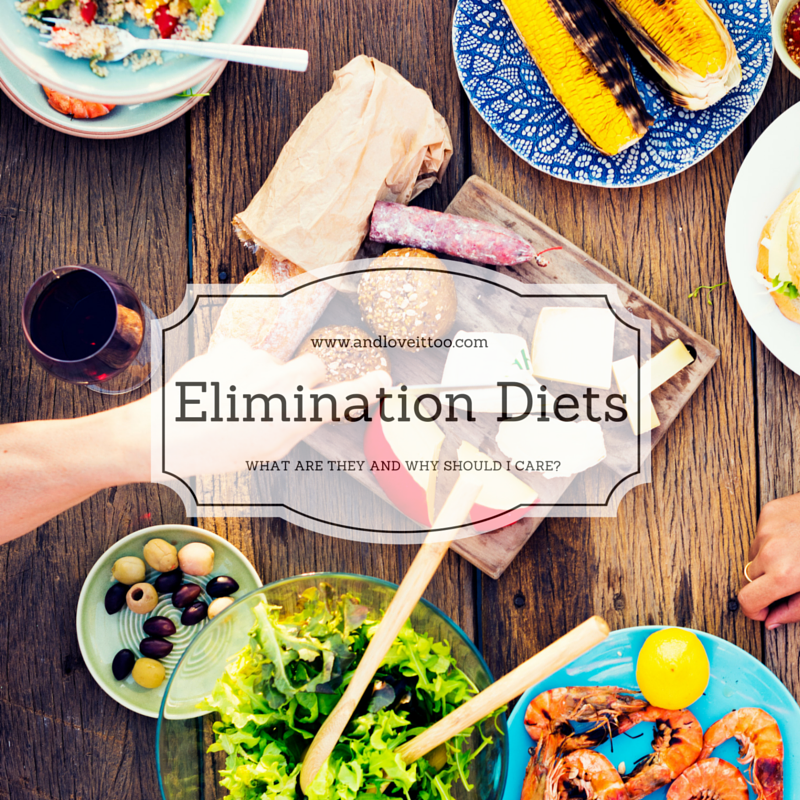
As someone who has dealt with multiple food allergies in her home, as someone who discovered she herself had food sensitivities that eventually led to diagnosis of Celiac Disease….
And as someone who has helped many, many families discover which foods, if any, are causing concerns in their life or in their children’s wellness…
I can tell you that elimination diets are very, very important!
The thing is, many of us don’t even recognize we have the sensitivities we do.
Why?
Because they show up as symptoms. Symptoms our doctors often prescribe or treat on its own.
My sensitivities/autoimmune response to food showed as iron deficiency anemia, digestive issues, canker sores, bone issues, weird hormonal spikes, acne, thyroid concerns, being overweight…and being underweight (yes, I’ve been both, yes, both are symptoms of undiagnosed celiac disease) and more.
My daughter’s food sensitives/allergies showed themselves as eczema, skin sensitivity, colic, gut issues, chronic constipation, rashes, fever and infection.
For my son, his severe allergy to shellfish first showed as his food tasting “spicy” (despite lack of seasoning), then vomiting, then hives then swelling. Those were obvious, terrifying, but quick to identify and easy to eliminate…his other sensitives show up as brain fog, lack of volume control, inability to focus, anxiety, headaches, digestive issues and acne…not nearly as obvious and far more difficult to hone in on.
For others it may show as heartburn, achy joints, headaches/migraines, vitamin deficiencies or more…
Save an immediate anaphylaxis response; determining what food, or IF food is at the root of your greatest or even most minute health concern isn’t always an easy thing.
Allergy testing, blood work, etc, aren’t always accurate; especially if your body is inflamed from continual and regular exposure to foods that are upsetting your system. For these tests to really, truly reflect what is going on, you should always minimize your exposure to these things before going in.
Why more doctors do not recommend elimination diets BEFORE testing, I don’t know.
Let me stop right here and say that whatever your health concern, chances are food is a part of it. In the very least, food can be a part of helping you through it, too.
Things you should know:
1. There is no firm guideline to doing an elimination diet. Some doctors/nutritionists will tell you that 2-3 weeks is sufficient, some will ask you to eliminate a certain food for months before reintroducing. Some elimination diets will have you eliminate one specific food at a time, some will tell you to eat nothing but unseasoned chicken and rice, some will tell you to eliminate specific food groups for a period of time while otherwise filling your belly with delicious wholefoods.
2. There are many, many types of elimination diets. The one that is right for you may be different than the one that is right for me.
And that’s okay!
My goal today isn’t to help you diagnose anything, I am not a doctor and cannot do that anyway.
My goal today isn’t to force you into one way of eating or another…the only person who has the power to change your life is you!
My goal today is to help eliminate some of the questions that come when seeking out options and pathways to wellness.
So let’s start by talking about favorites….
The #1 elimination diet I recommend for all of my clients is a program known as The Whole30.
First, the Whole30 sets the perfect timeline…it takes anywhere from 2 weeks to 30 days for most foods to work their way out of your system, or for your body to recover from the inflammatory response those foods have caused. Occasionally it takes longer, but for most, this 30 days break is exactly what your body needs to re-set and help you determine what is actually going on with your body.
Second, while some of the top 8 foods are allowed on the Whole30 program (nuts, shellfish), if you are concerned about these, there are definitely ways to complete a Whole30 without including these in your food.
Thirdly, it’s all about whole foods. Nothing processed, nothing weird, no asking you to seek after some strange root that only comes from Africa and can only be found by the witch doctor up the road.
Not that at all.
The Whole30 teaches like I do…the best way to heal is by eating the best quality food you can afford. Delicious whole foods. No calorie counting, to weighing. As long as they fit in the “allowed foods” category, you’re good to go!
After the Whole30 is complete, you’ll walk through a reintroduction phase that takes approximately 12 more days to complete.
The only thing I insist on this that is not clearly outlined in the book is to introduce gluten last. Because gluten can stay in your system for sooooo long after being exposed, I would much rather have you reintroduce that last than to reintroduce glutenous grains two days before dairy, then have dairy be the thing that pushes your body over the edge, leaving you to believe that diary was the whole issue…when in reality gluten was the actual trigger, dairy just added to it.
You know?
Any how…just take my word for it. Introduce gluten last. It will make everything else easier to manage.
You can learn more about the Whole30 program and the science behind it in the book: It Starts With Food. I recommend this book to nearly all of my clients, you should get it, too.
My next favorite book would definitely be, The Elimination Diet. Alissa Segersten and Tom Malterre do a fantastic job of helping you to discover what foods may be at the heart of your health concerns. This option is great for anyone who is unsure of following a Paleo based eating program like the Whole30.
This three-phased program which includes a 2-day fast, a 2-week elimination and a 2-month re-introductory phase, is fairly intense for some; which is the only reason why I don’t list it as my #1 recommendation…because frankly, if I could get everyone to follow their plan, I would.
If you’ve already done a Whole30 program and still have concerns that you haven’t been able to hone in on, The Elimination Diet is an excellent book and a great program to follow.
Finally, The Paleo Approach.
Chances are, if you’re like me and have been blessed with multiple auto-immune diagnosis, you’ve at least heard of Dr. Sarah Ballantyne by now.
Having healed her gut and changed her life through her own journey with a Paleo lifestyle, Sarah Ballantyne, PhD, has painstakingly put together a program designed to help us find wellness through natural solutions. Using science as her guide, Sarah explains why so many “healthy” foods like soy, whole-grains and low-fat diary are actually doing more harm than good to our bodies.
Her program is more intense than a Whole30, and a little more strict than the Elimination Diet, but totally doable and so worth it, especially when your body is attacking itself the way autoimmune diseases do.
I know there are thousands of other options out there…but I hope this list helps you hone in on a program that might be ideal for you.
And as I said in the beginning, if you would like some personal help and guidance, you’re always welcome to contact me directly or join us at: Living the Healthy Life with the Wellness Advocates of HOPE.
I look forward to hearing from you soon!

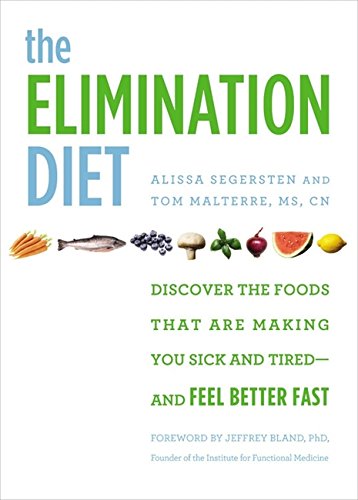
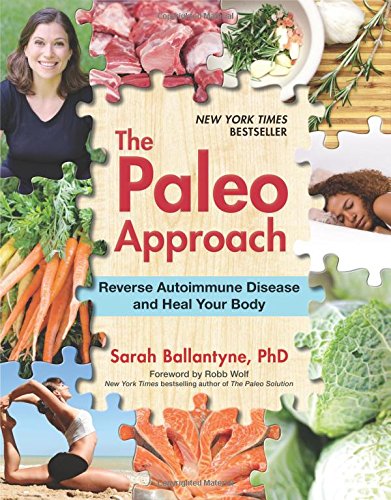









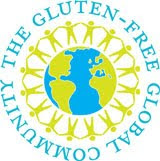
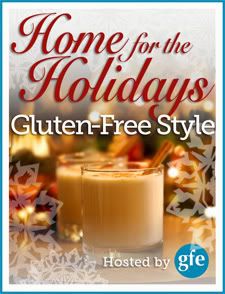




Speak Your Mind